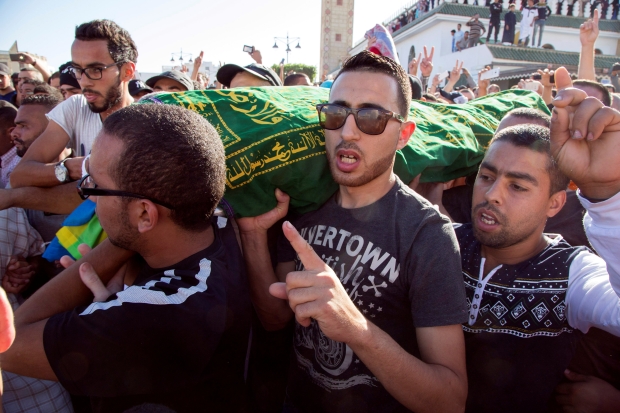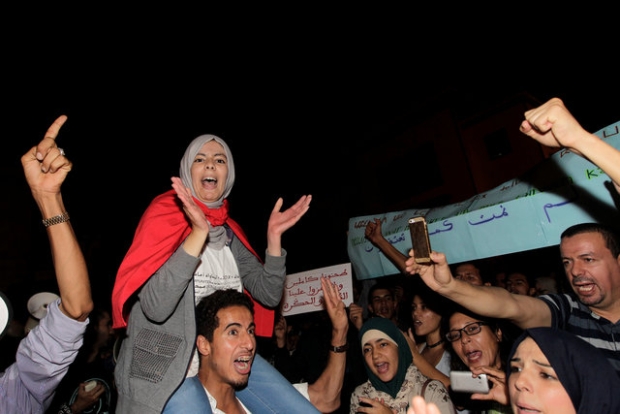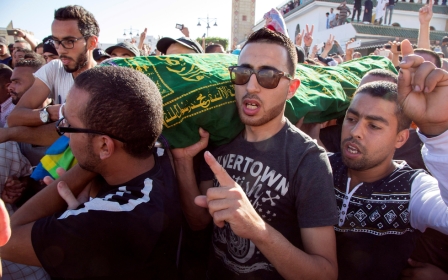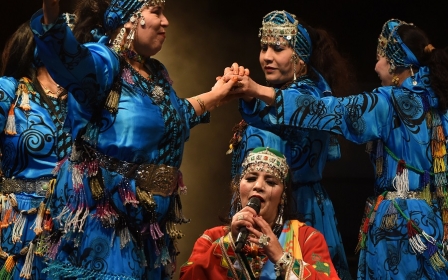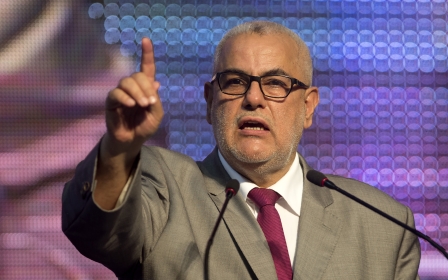'It could happen to any of us': Why the revolution in Morocco has started
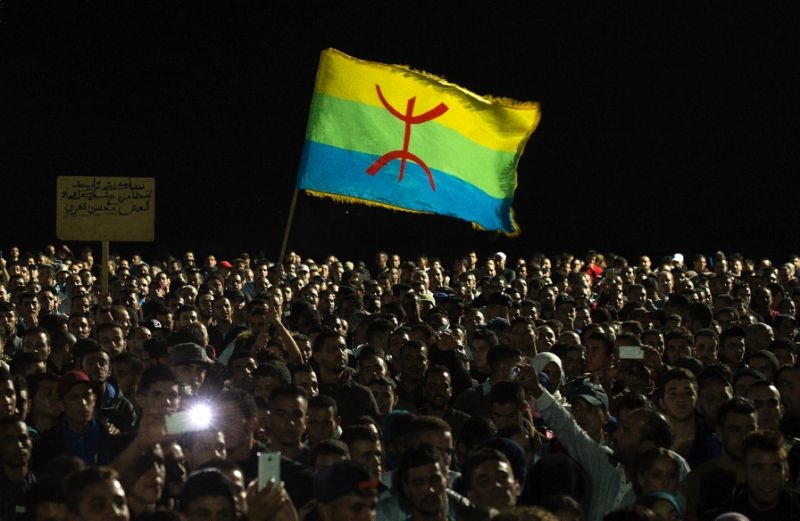
Our story starts with a 31-year-old Riffian man named Mohsin Fikri who lives in the city of Hoceima in northern Morocco.
Like the majority of Moroccans, Mohsin was extremely poor. He was Riffian, meaning that he was both an Amazigh and also from the Rif, a mountainous region in the north where many Amazigh live – and one of many non-Arabised zones in Morocco that the government has completely marginalised to the point that some cities still don't have electricity, water or hospitals.
It was too late to stop the machine: even as they screamed for them to stop, Mohsin Fikri was already dead
On Friday, Mohsin, who was a fisherman, was caught by the makhzen (the Moroccan police) trying to sell swordfish that he obtained illegally. They confiscated the fish.
Like the government, and every other institution in Morocco, the police is a corrupt organisation. Motivated by the low salaries they get from the government or just simply by the greed in their hearts, they usually make citizens pay an amount of extra money in order for them to act like they didn't see anything out of place.
As we said, Mohsin was a humble man who barely had any money for himself or the rest of his family. His job as a fisherman was his only source of money to stay alive and survive in a country where it is almost impossible to find a job.
When police asked for money in exchange for letting him sell the fish, obviously, he couldn't afford to pay.
The police then proceeded to throw all the fish he was going to sell into a nearby garbage truck. Mohsin, who along with four friends watched all of his work tossed into the trash, attempted to jump into the truck and save some of the fish so he could sell it and at least get some money for him and his family members who all depended on him.
The police, surprised by his actions, reacted in a really cruel way: they went to the back of the garbage truck, and saw the four men in there, looking for the fish.
They all jumped out in time - except for Mohsin, who was still there when, as a video released shows, the police told the garbage truck driver to press the buttons and crush the trash while saying t'han mo (‘crush him’ in Darija, a language derived from Moroccan Arabic).
It was too late to stop the machine. Even as they screamed for it to stop, Mohsin Fikri was already dead.
'It could happen to any of us'
Events like this happen all the time in Morocco, but they don’t get recorded like this one.
And even if they do get recorded, the manipulated media in Morocco won't show them, and that's one of the reasons why so many Moroccans are clueless about some topics in our country: the government won't show anything that goes against them or King Mohamed Vl.
No one is safe, and that’s one of the reasons why every city in Morocco is now protesting in front of government buildings, demanding and asking for change
This Amazigh man’s death has opened the eyes of an entire nation and has made them say “enough”.
On Sunday, thousands of people in Hoceima left their houses and marched in the streets together to protest the incident.
“If it happened to him, it could happen to any of us, this must stop, this is not fair,” one of the protesters could be heard saying in the live streaming video of the march.
The Amazigh struggle in Morocco is alive, the government’s pan-Arabist ways have affected all the Amazigh population in Morocco, treating the people, the language, and the culture as “savage traditions”.
The incident in the Rif region – the killing of Mohsin - was just the last straw, the thing that made people fed up with the situation here in Morocco.
Even though it tends to happen more in marginalised regions, police brutality can happen everywhere in Morocco. No one is safe, and that’s one of the reasons why every city in Morocco is now protesting in front of government buildings, demanding and asking for change.
Very important cities have shown solidarity with Mohsin Fikri and the Rif, and they have asked the government to care for the people.
Fearless and ready to fight
Meanwhile, the king, Mohamed Vl, is enjoying a tour of Africa. People have seen him in jewellery shops, obviously spending the Moroccan people’s money, while some can't even afford to pay for medicine to stay healthy or send their kids to school.
People have been waiting for a revolution in Morocco to start, but the oppression and the fear has always been an obstacle. But this time is different
And, of course, he has not said a word about this whole situation.
People have been waiting for a revolution in Morocco to start, but the oppression and the fear has always been an obstacle on their way to freedom. But this time is different. This has never happened in Morocco before.
People are fearless and ready to fight for what they want: a democratic Muslim republic, not a corrupt monarchy like the one we have right now. Not a Moroccan monarchy formed by the dynasty of Alaouites, who were the symbol of traitors during the colonisation, who sold our country to the colonisers and, to this day, keep doing it for their own benefit. Not a dynasty that always took the West’s side.
With all this said, we hope that Mohsin’s death brings the change to the beautiful country that Morocco is.
- Rlfflan is the pseudonym of a Moroccan writer tweeting @RLFFLAN
The views expressed in this article belong to the author and do not necessarily reflect the editorial policy of Middle East Eye.
Photo: A protester holds the flag of the Rif Republic as protesters shout slogans in the northern city of Hoceima on 30 October 2016 (AFP).
This article is available in French on Middle East Eye French edition.
New MEE newsletter: Jerusalem Dispatch
Sign up to get the latest insights and analysis on Israel-Palestine, alongside Turkey Unpacked and other MEE newsletters
Middle East Eye delivers independent and unrivalled coverage and analysis of the Middle East, North Africa and beyond. To learn more about republishing this content and the associated fees, please fill out this form. More about MEE can be found here.



